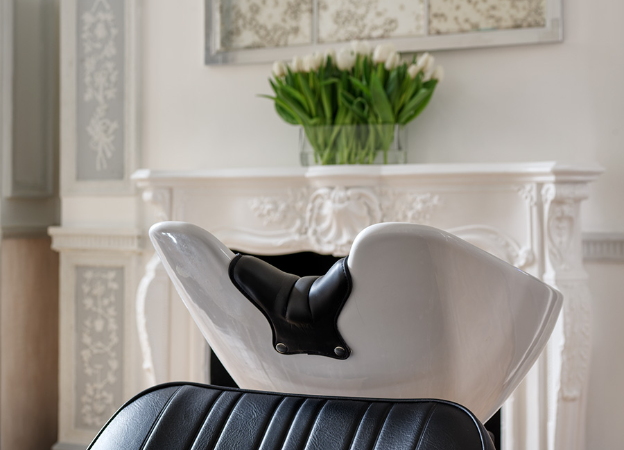What Causes Split Ends & How To Prevent Them | Philip Kingsley
SPLIT ENDS
Split ends can be frustrating and seem impossible to get rid of once you have them. They occur when the ends of your strands become dehydrated and/or damaged through weathering and chemical processing, then weaken to the point they fracture. Split ends can make your hair look frizzy and dull and, even worse, they can sometimes extend up your hair shaft and cause hairs to break off.
So, what to do? Unfortunately, you cannot repair a split end. You can mask them with leave-in conditioners or smoothing balms that will temporarily seal them together, but after a certain number of washes or a certain amount of brushing, they will un-glue. The only sure cure for split ends is to cut them off — and then prevent them from happening again!
But don’t fret, there is a lot you can do at home to guard your hair against split ends (as we share below!). Or alternatively, if you’d prefer to seek help from the professionals, our Clinics in London and New York specialise in hair and scalp treatments, and will be delighted to welcome you.
How to Remove Split Ends
Simply trimming your hair will not get rid of all your split ends. Your hair is different lengths throughout your head (due to the different growing phases of each follicle), so if you cut your ends about half an inch, you will simply expose the next layer of split ends. Try our trick for cutting them all off while preserving your hard-won length, all you need is a patient and trusted hairdresser or a good friend to help:
Separate your hair into small sections and twist it from the ends like a corkscrew. The various lengths will stick out along each 'twist’, showing where the split ends are. Now you can trim them off. It takes forever, but if you want to grow your hair long without split ends, it is a very effective exercise.
Brush Gently
Ease out Tangles
Use a wide-tooth comb to remove knots and tangles. Start at your ends and gently work up to your roots. If you start at the top, or go at them with a brush, you can snap your hair along the shaft and leave yourself with split ends throughout your lengths.
Use a Deep-Conditioning Mask
Use an intensive pre-shampoo conditioning treatment like Elasticizer once or twice a week, depending on your hair texture, to keep your ends supple and hydrated. This is even more important if you have tresses below shoulder-length or chemically processed hair, since the ends will naturally be more weathered. Moisturised and hydrated hair is stronger and less likely to split.
Use a Weekly Bond Repair Treatment
Another effective way of reducing split ends is by using intensive treatments designed to tackle damage (the culprit responsible for hair snapping and splitting). Bond Builder Restructuring Treatment has been formulated to strengthen and repair bonds inside the hair, and is proven to leave hair up to 3X more resistant to damage*. With continued use, your hair will be less brittle, you'll see fewer split ends, and strands will have increased resistance against breakage.
*MEAN INCREASE 2.79X AFTER 5 TREATMENTS COMPARED TO A SINGLE TREATMENT - INDEPENDENT INSTRUMENTAL TEST RESULTS
Smooth Your Strands
Try a detangling serum or spray like our Daily Damage Defence Leave-In Conditioner on your mid-lengths and ends. This will help smooth interlocked cuticles and reduce friction when combing.
Towel Dry Kindly
If you rub your hair roughly when towel-drying, you can cause knots and then breakage, which leads to split ends. Gently squeeze excess moisture from your hair instead.
Go Easy with the Blow-Dryer
Use a lower heat setting and turn off the heat when your hair is ‘just dry’. Over-drying can scorch and dehydrate your ends, which is one of the main causes of splitting.
Wear UV Protection
UV rays damage hair proteins, making your hair dry and brittle. If you are in the sun for a long time, shield your hair with a leave-in UV protector like Swim Cap. Or wear a hat.


